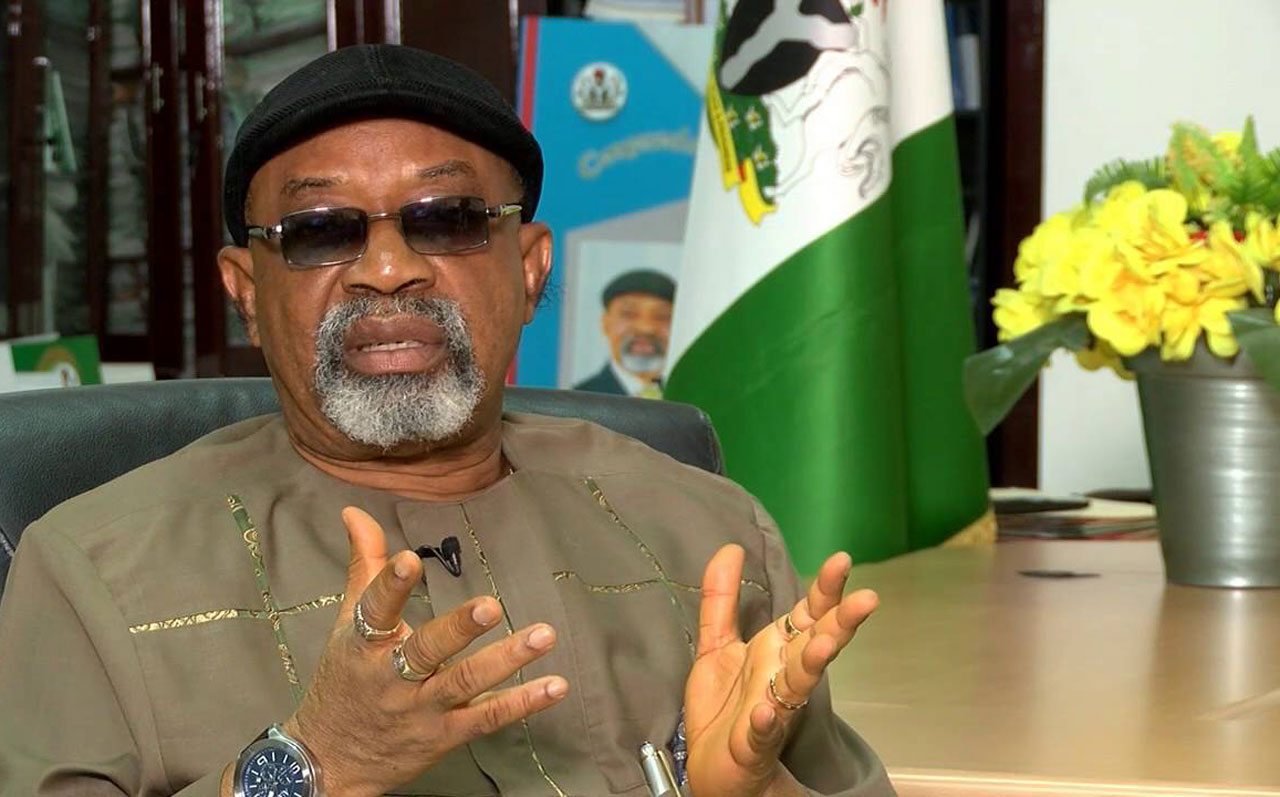
Chris Ngige, Minister of Labour and Employment, says President Muhammadu Buhari’s economic agenda is tailored towards aggressive economic recovery of the Nigerian economy.
The minister was quoted as saying this in a statement signed by Mrs Rhoda iliya, an Assistant Director, on Monday in Abuja, NAN reports.
Ngige said this while addressing the 3rd Session of the Specialised Technical Committee on Social Development, Labour and Employment of the Africa Union, which took place in Addis Ababa, Ethiopia.
The theme of the conference: “Poverty Eradication Through Strategic Investments at National and Regional Levels Towards Social Development, Labour and Employment in Africa”, aligned to the “Africa Agenda 2063 for Prosperity.”
Ngige was a lead discussant in a paper entitled: “The Efforts of the Nigerian Government Towards the Eradication of Poverty.’’
He said that the economic development agenda of the President Buhari’s administration was tailored towards a concurrent growth of the three-tier federal structures of national, states and local governments in line with the diversity of the nation’s economy.
“The present administration met a battered economy in 2015, which slipped into recession in the first and second quarters of 2016, prompting an aggressive economic recovery plan with big emphasis on agriculture and food security.
“The effects were dramatic. We boosted agriculture and raised the capacity of the nation to feed her-self, to the extent that importation of rice for example, dropped by 95 per cent.
“The same goes for sorghum. This decisive inward look was pivoted on the elastic efforts of government, which the Central Bank of Nigeria piloted through the Anchor Borrowers Programme in agriculture, ‘’ he said.
Ngige said on the issue of social investments, that there were the Home Grown School Feeding Programme, which had been complementing the free education policy at the primary and junior secondary school levels;
He added that this had stemmed the incidence of school dropouts, which he identified as precursor to child labour.
The minister said that the programme had captured about N10 million school children in 25 states of the federation.
He also explained that the present administration had other social investment programmes, such as the N-Power under which the Federal Government had employed 500,000 graduates, the N-Build where 50,000 were engaged.
He listed other programmes to include the N-Agro, N-Knowledge, N-Health, and N-Build where hundreds of thousands were also employed.
Ngige added that government Enterprises and Empowerment Programmes also made interest-free loans available to small businesses as well as the National Cash Transfer programme (Conditional and Unconditional) to over 1million vulnerable and poor Nigerians.
The minister noted that this was besides the thousands already benefitting from similar programmes by the National Directorate of Employment(NDE).
Ngige, therefore, said that the Economic Recovery and Growth Plan would not have been impossible without the anti-corruption measures such as the Treasury Single Account(TSA) and the whistle blowing policy which government put in place.
According to him, this programme has shut down leakages and ease the recovery of stolen funds as well as the efforts of the anti-corruption agencies primed for zero-corruption agenda of the government.
Ngige further said that government’s efforts in the last four years had charted a new course for Nigeria with the results of the giant strides made manifest in core sectors of agriculture, anti-corruption , employment generation, infrastructural development and war on insurgency.
He added that Africa would remain the hewers of wood and fetchers of water, (quoting late Emperor Hallie Selassie of Ethiopia) if drastic measures were not taken by the leaders to fiercely tackle myriads of teething underdevelopment scourge assailing the continent.





